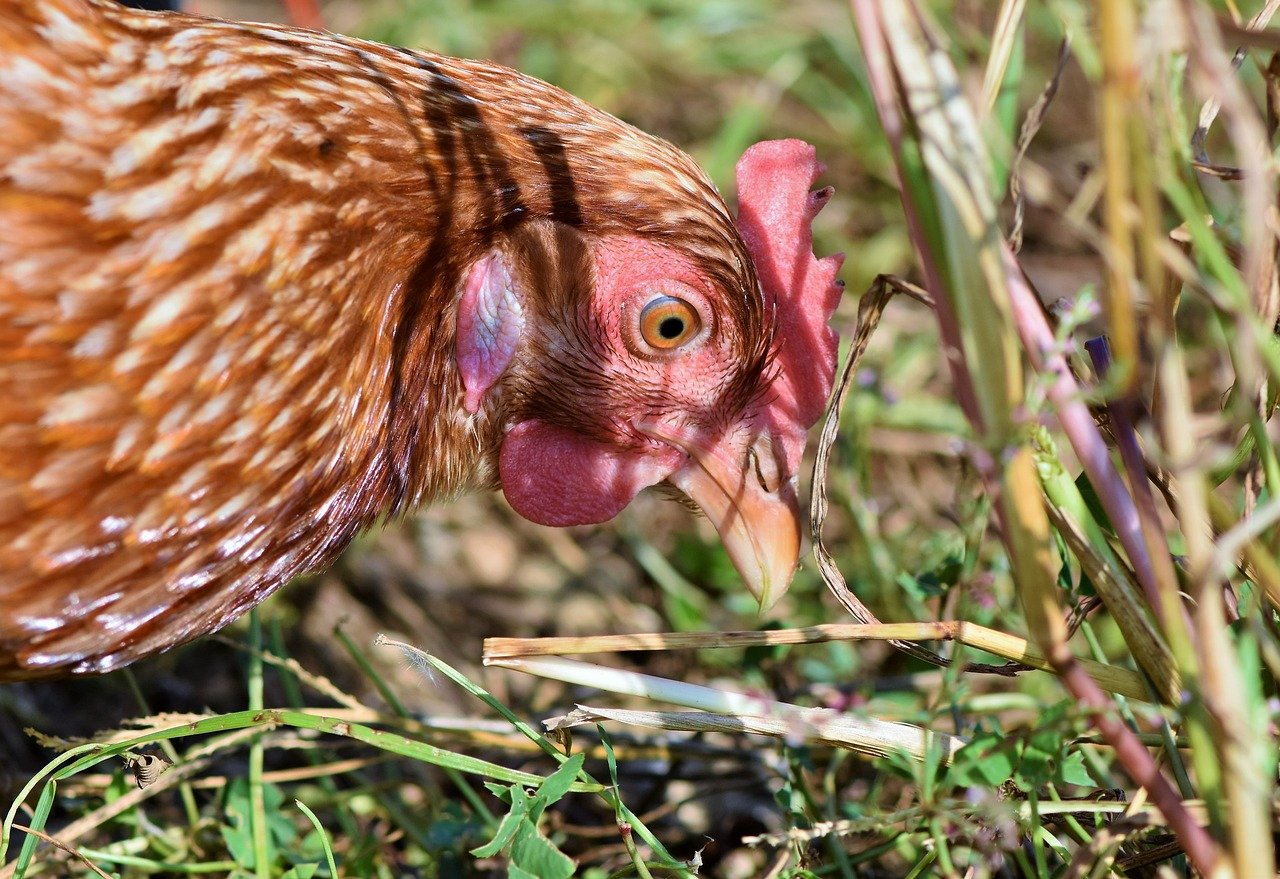This page includes affiliate links which I may receive a small commission for. All opinions remain my own and I only recommend products or services I believe will add value to my readers.
Mites are a common pest that can severely affect the health and productivity of chickens. These tiny parasites can cause discomfort, decreased egg production, and even serious health issues if left untreated. Fortunately, there are several effective treatments available that can help manage and eliminate infestations. This blog will compare several options to get rid of mites including chemical treatments, natural remedies, and preventive measures. I am not a big fan of the chemical options and you do need to take extra precautions when using them but some people swear by them.
Permethrin Spray
Permethrin is a synthetic chemical that is highly effective against mites. It can be used as a spray to treat both the chickens and their living environment. To use spray directly on the chickens, focusing on the vent area, under the wings, and around the neck. Apply to the coop, especially in the crevices and nesting boxes where mites hide.
This product is safe if you follow the instructions and precautions carefully. You want to make sure that you don’t have any cats that may come in contact with the chemical as it is more toxic for them. You also want to make sure that you are not spraying close to any bodies of water to avoid run off and do not spray near any bee hives as it is toxic to bees.
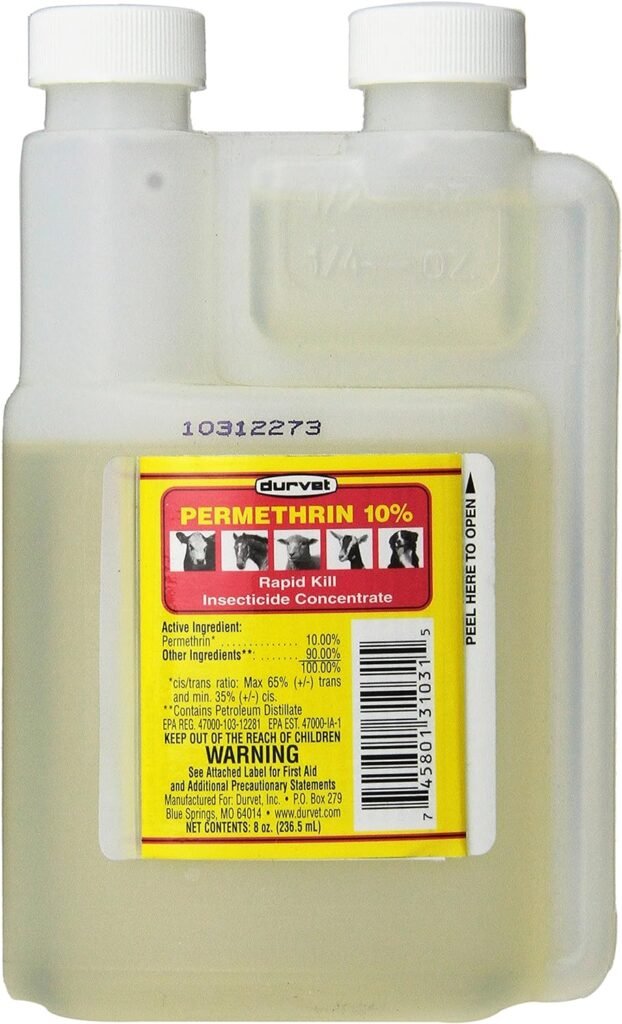
Ivermectin
Ivermectin is a powerful anti-parasitic medication that can be used off-label for treating mites and worms in chickens. It is typically administered orally or topically. To use apply topically by placing drops on the base of the neck. Do not eat eggs for ten days after applying to your chickens.
This is a treatment that is very difficult to dose correctly for chickens and you have to wait for over a week to eat any eggs from the chickens that you treat.
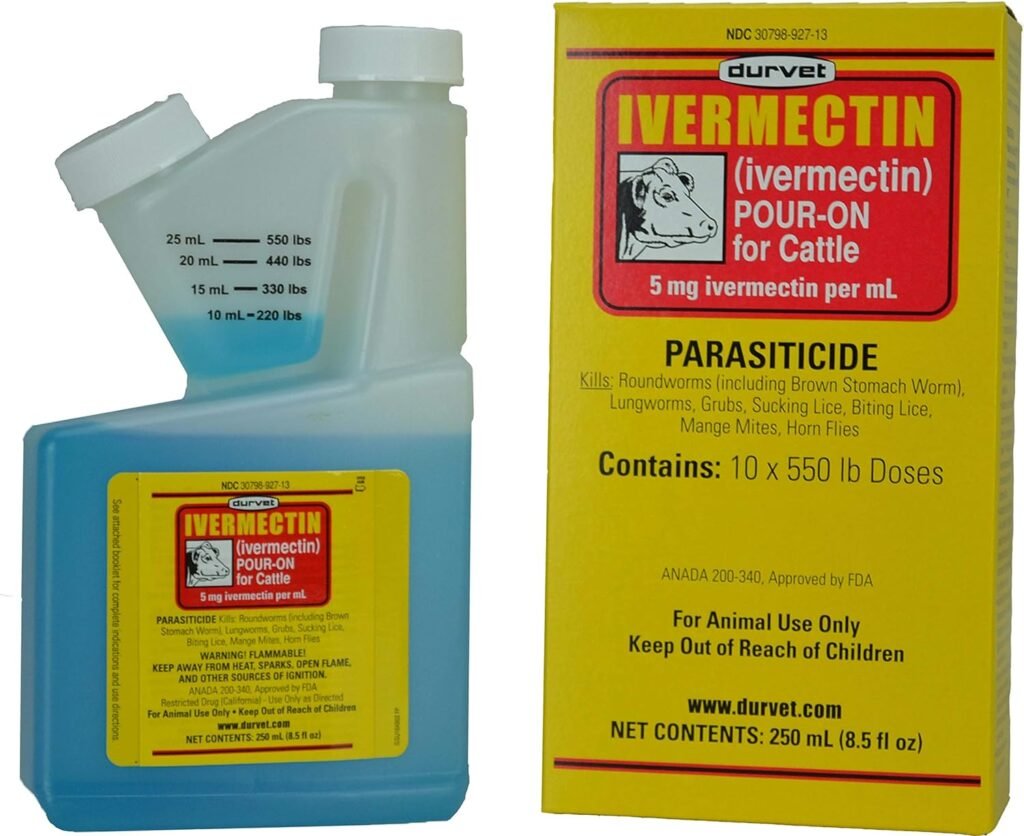
Mite Dusting Powder
Dusting powders are specially formulated to kill mites on contact. These powders often contain insecticidal ingredients that are safe for use on poulty. To use, dust chickens thoroughly, especially around the vent, under the wings and along the neck. Reapply as necessary, usually every 7-10 days until the mites are eliminated.
It is advised to wear a mask when dusting and try to cover the chickens’ heads while doing this to curb their inhalation. This also contains permethrin so you will have to be careful if you have cats.
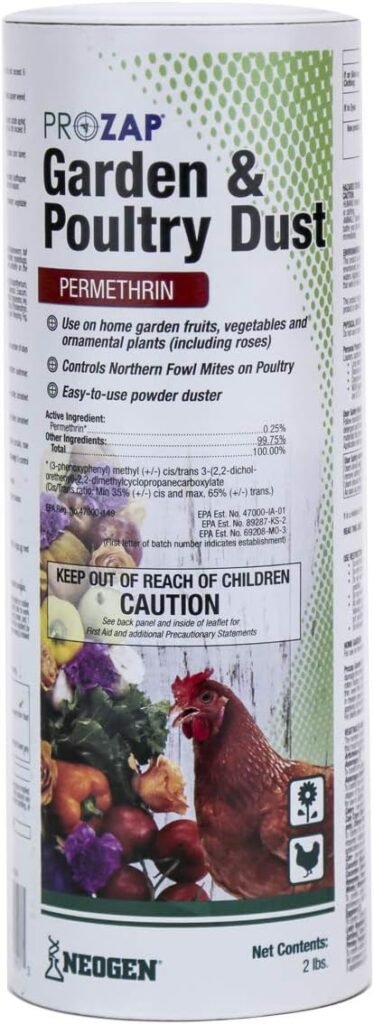
Diatomaceous Earth (DE)
Diatomaceous earth is a popular natural remedy for mites. I use this to prevent mites. It is made from fossilized aquatic organisms and works by dehydrating and killing mites upon contact. To use, sprinkle DE in the chicken coop, nesting boxes, and dust bathing areas. Apply directly to chickens by dusting their feathers and skin.
Diatomaceous earth is a natural product, but you should wear a mask when using it. It can irritate the nose and nasal passages.
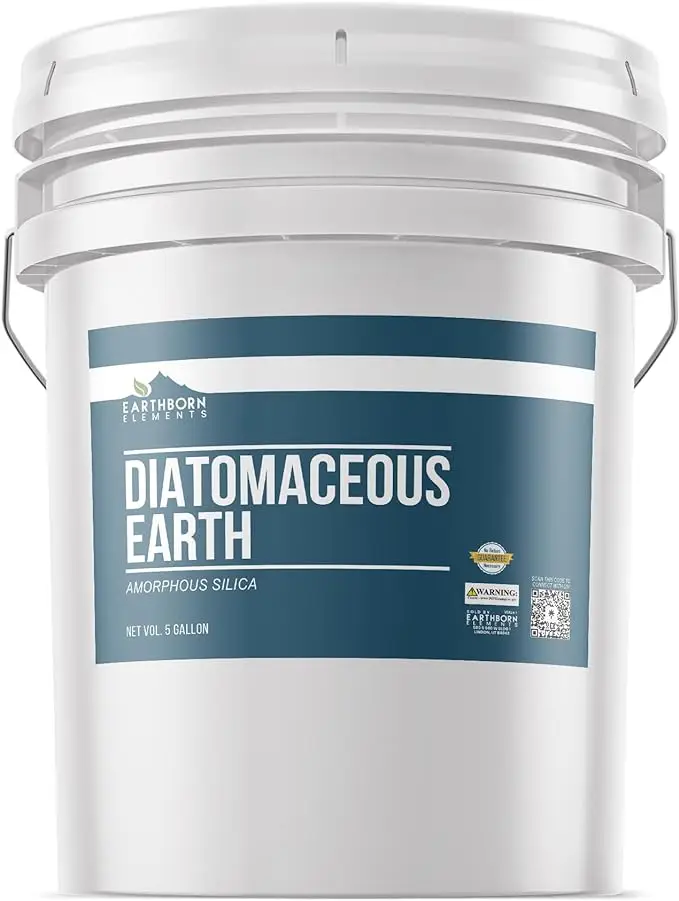
Herbal Remedies
Herbal treatments can offer a natural alternative for mite control. These remedies often contain essential oils and other natural ingredients known for their insect-repellent properties. To use mix with water and spray onto chickens and coop surfaces. It can also be added to the chickens’ dust bath.
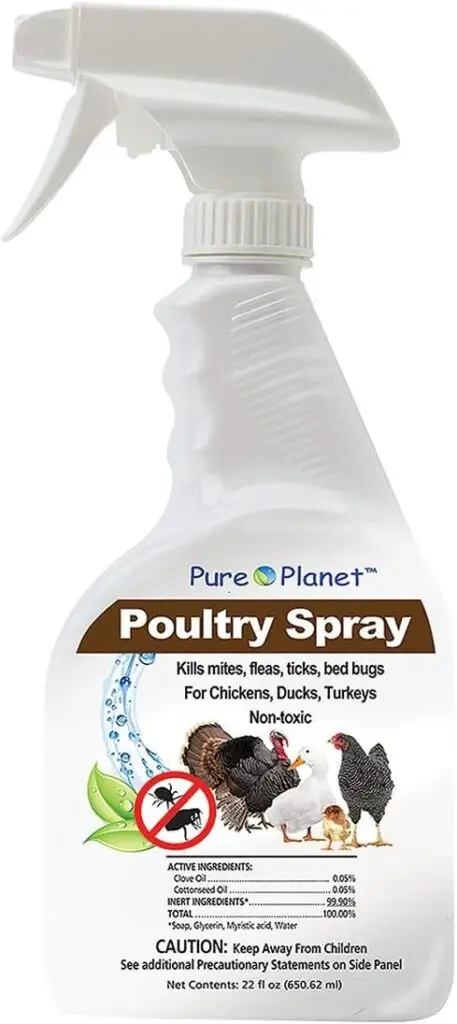
Oil Based Natural Products
There are products like Neem Oil that can be used to get rid of mites. I am including this product which uses Clove oil and Cottonseed oil. Just shake before using and spray directly on chickens and on all coop surfaces. It can also be sprayed on dust bath areas. It is all natural and safe.
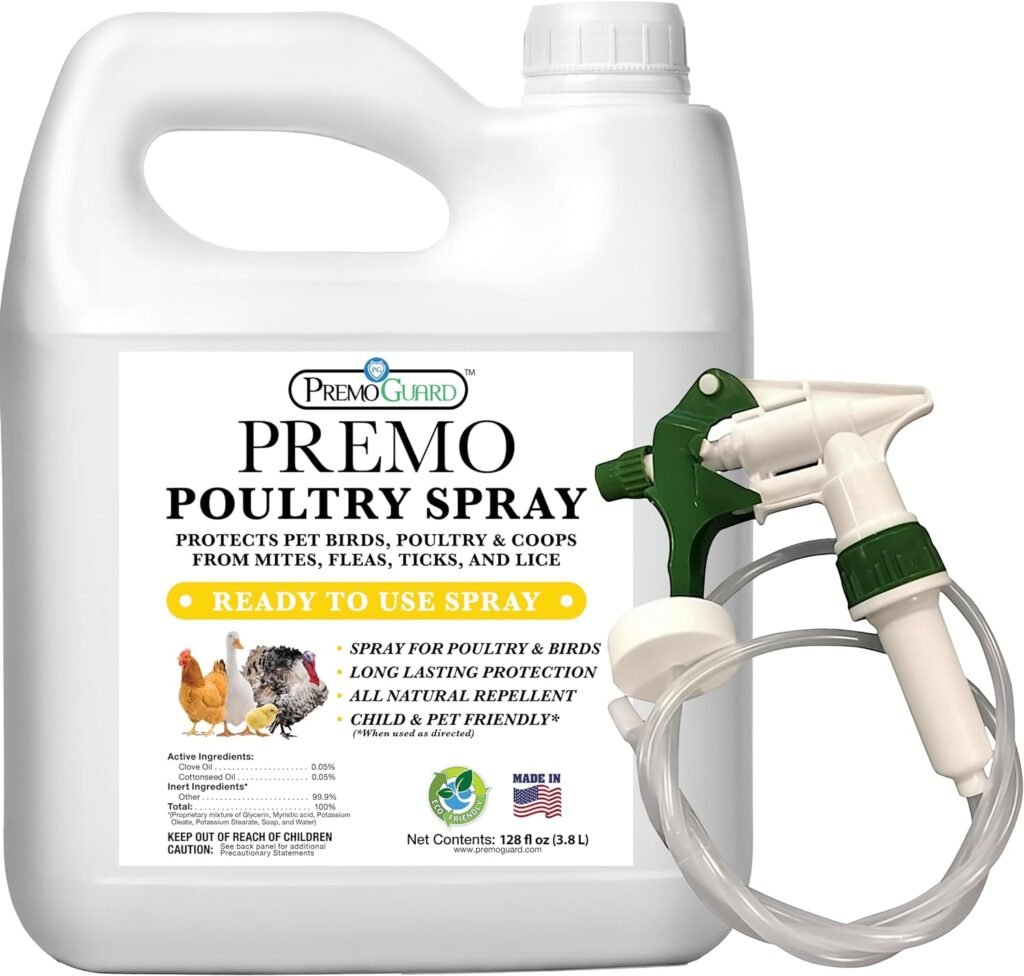
Each of these treatments can be effective depending on the severity of the infestation and the specific type of mite. For best results and the safety and wellbeing of your flock be sure to follow the instructions carefully for each type of treatment. In combination with any of these treatments you should take preventative measures by keeping the coop clean and providing a dust bath for your chickens.
